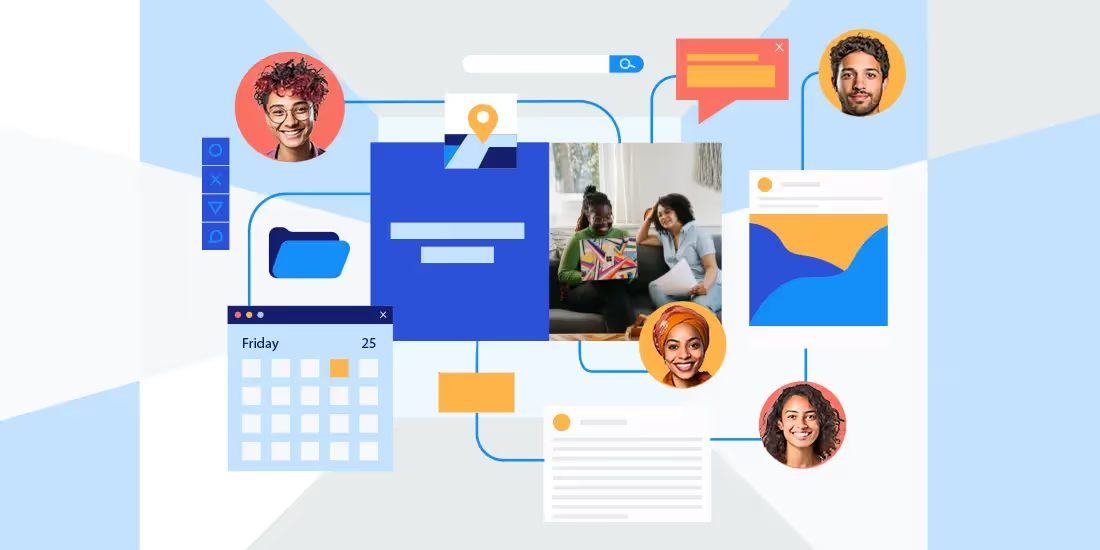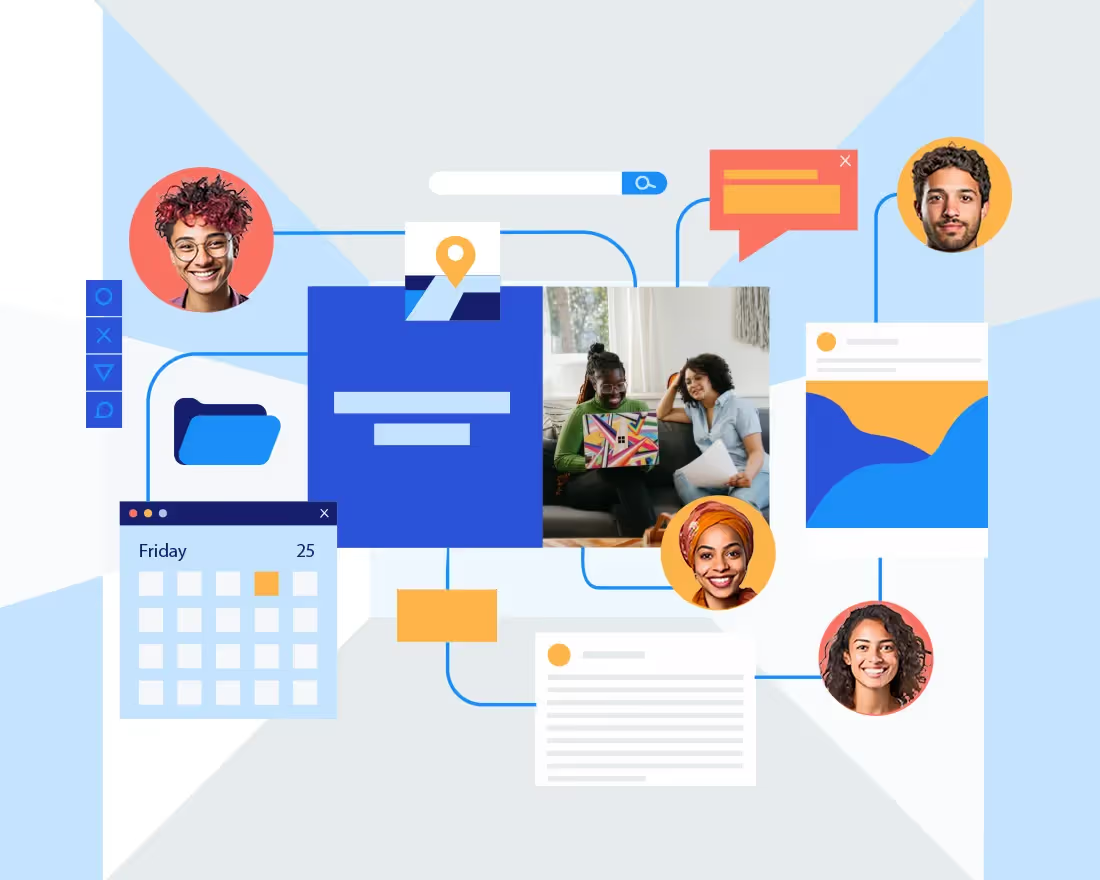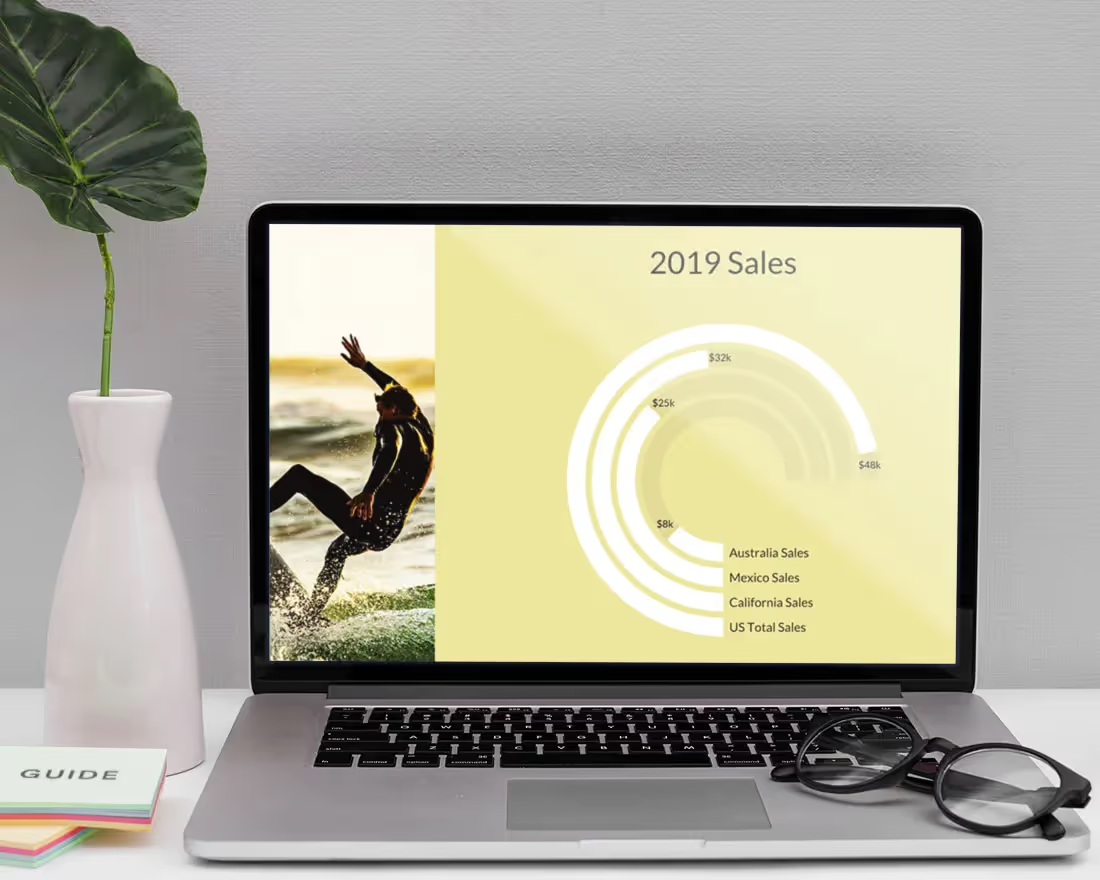
Ready or not, the new year is in full swing. By now, many teams have likely sat down to plan for the months to come as it relates to product releases, budget, overarching campaigns, etc. But have you thought about smaller, milestone goals or OKRs (objectives and key results)? Goals— whether that be personal career ambitions or specific key performance indicators (KPIs) for your current role— help keep you motivated and on track throughout the year. It’s important to set realistic goals that challenge you to ensure you’re moving forward towards growth both professionally and personally.
As a manager, setting goals as a team can help set expectations so that individual contributors can achieve success at a more efficient rate. In 2024— a year that’s going to see the continued growth of artificial intelligence— teams can leverage the smart technology to guide the goal-setting and planning process by providing insights, data analysis, and facilitating collaboration.
Here are 10 ways managers can use AI to help set realistic goals with their team.
AI tools for data analysis
Data can tell you where you’ve been, to help inform where you need to go. But complex numbers can be a time suck. Instead of getting buried in analytics, utilize AI tools to analyze historical data, performance metrics, and trends within your organization. This analysis can help you set goals based on realistic expectations and past achievements.
Predictive analytics
There’s no telling where the new year will take your business, but you can make predictions based on how things are trending. AI can assist in predicting future outcomes based on historical data. This can help your team set achievable goals by understanding potential challenges and opportunities, without getting bogged down by metrics.
Resource optimization
AI algorithms can help optimize resource allocation by identifying areas where your team can perform better or where additional support may be needed. Not only does this acknowledge gaps in the department, it ensures that goals are set with a realistic assessment of available resources and bandwidth.
Task automation
The day-to-day can oftentimes get in the way of bigger projects. By leveraging AI to automate repetitive tasks, teams can free up time to focus on more strategic and impactful goals. This ensures that the goals set will align with the company’s bigger picture.
Collaboration platforms
Once the team has identified their goals, managers need to make sure everyone is on the same page. AI-powered collaboration platforms can enhance communication and information sharing within your team to avoid bottlenecks and blockers.
AI presentations
AI presentations can help teams align on plans, goals, and deliverables by acting as a platform for better collaboration and communication. Setting goals and OKRs for the department— and business— is a team effort, so having it live in one presentation deck keeps everyone on the same page, all the time.
Beautiful.ai’s artificial intelligence is a powerful creative partner that designs slides quickly, helps brainstorm ideas and generates text and images in a snap. All you have to do is ask, and watch the AI technology generate a unique deck for you in seconds. This is a good jumping off point for teams looking for a specific template for all-hands meetings, KPI outlines, or planning decks.
Personalized goal setting
AI can analyze individual team members' strengths, weaknesses, and preferences to help personalize goals. This is meant to motivate each team member to work towards objectives that align with their skills and responsibilities. Having personalized goals keeps individual players on track and productive quarter over quarter.
Continuous learning
AI-driven learning platforms can help your team acquire new skills and knowledge, enabling them to achieve more ambitious goals over time. This level of career-support contributes to a culture of continuous improvement, which will help with employee satisfaction and retention.
Productivity management
Lastly, your team’s success depends on their productivity. Certain AI productivity tools can help you allocate your time more effectively. By streamlining workflows, automating processes, and improving time management, these tools can help teams do their jobs even better as they work towards their goals.







.avif)
